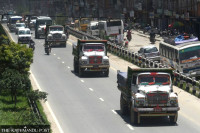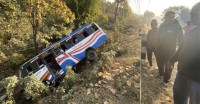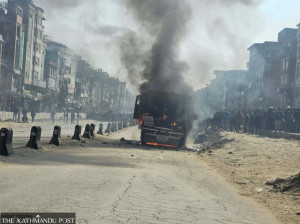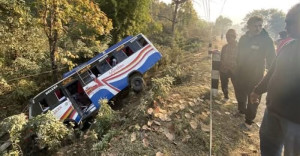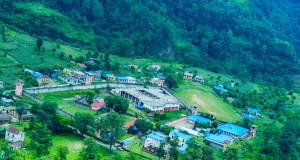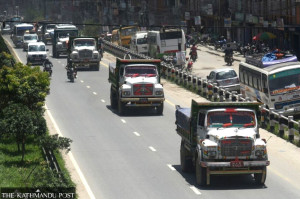Bagmati Province
Nearly 700 Sal trees dry up suspiciously in Chitwan National Park
Officials admit the park has failed to investigate the issue and manage dried up trees.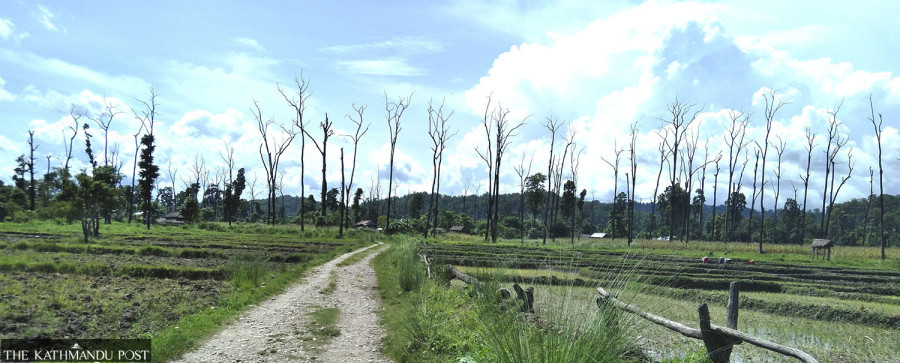
Shankar Acharya
Around 700 Sal trees have dried up suspiciously in Hanumanjhula village area of the Chitwan National Park over the past few years. It is suspected that the locals, who encroached the park’s forest in Madi Municipality-9, peeled off the bark of Sal trees (Shorea robusta) to dry them up.
The park administration neither took action against the guilty who deliberately dried up the trees nor managed the dried up Sal trees. If the dried up trees are not managed soon, such precious wood will be decayed, stolen or smuggled, say conservationists. The government can earn millions of rupees just by selling the dried up Sal trees.
“I was informed about the drying up of the Sal trees in Hanumanjhula area which borders Parsa's Thori Rural Municipality. I am yet to make a field visit to inspect the trees and their condition,” said Haribhadra Acharya, chief conservation officer of Chitwan National Park. He suspected that the encroachers peeled off the bark of the trees with the intention of expanding farmland.
“Such a huge number of trees could not have dried up at the same time in the same area. It is a suspicious issue,” said Acharya, adding that it adversely affects the environment. He, however, admitted that the park administration failed to investigate the issue and take legal action.
The park administration also failed to manage the dried up trees. According to Acharya, the national park administration cannot cut or sell such dried trees. “Such dried up trees inside the national park can be managed only after the decision of the Council of Ministers,” said Acharya, adding that process is on to write the centre for the permission to manage those dried up Sal trees.
People in the buffer zone area across the nation are found drying up the trees by removing the barks which is known as girdling. Once the bark is removed off trees, the connection between the roots and the leaves is interrupted and the flow of neutrinos and water reaching the tree from the ground through the root is blocked and the tree starts to dry.
The local people in Hanumanjhula are reluctant to comment about the issue. Bina Pathak, a ward member and executive member of Madi Municipality, said she has been observing that more trees have dried up in the past two years.
The villagers in Hanumanjhula, which has nearly 900 households, do not have land ownership certificates till now. Most of the people who migrated from Makwanpur and Chitwan have been living in the area for about 30 years by encroaching the park’s forest area.
“All the trees which were dried up and died there have only one similarity which is that all the tree’s barks have been removed,” Pathak said. “Suspicion has also arisen that the locals might have been doing this knowingly. Along with the park, the ward official has also been investigating this issue. There is no proper evidence or witness but it has come to my notice that locals have been smuggling dried Sal trees for money.”
Residents of neighbouring Parsa's Thori Rural Municipality say that the trees have dried in a particular way because the locals want to remove the trees from their settlement and from the field in order to expand their settlement and farm.
“Most of the Sal trees in the middle of the village are drying up,” said Sarki Lama, a local of Thori. “While it may be natural for one or two trees to dry up, the fact that many have simultaneously seen the same fate is certainly suspicious.”




 9.7°C Kathmandu
9.7°C Kathmandu
